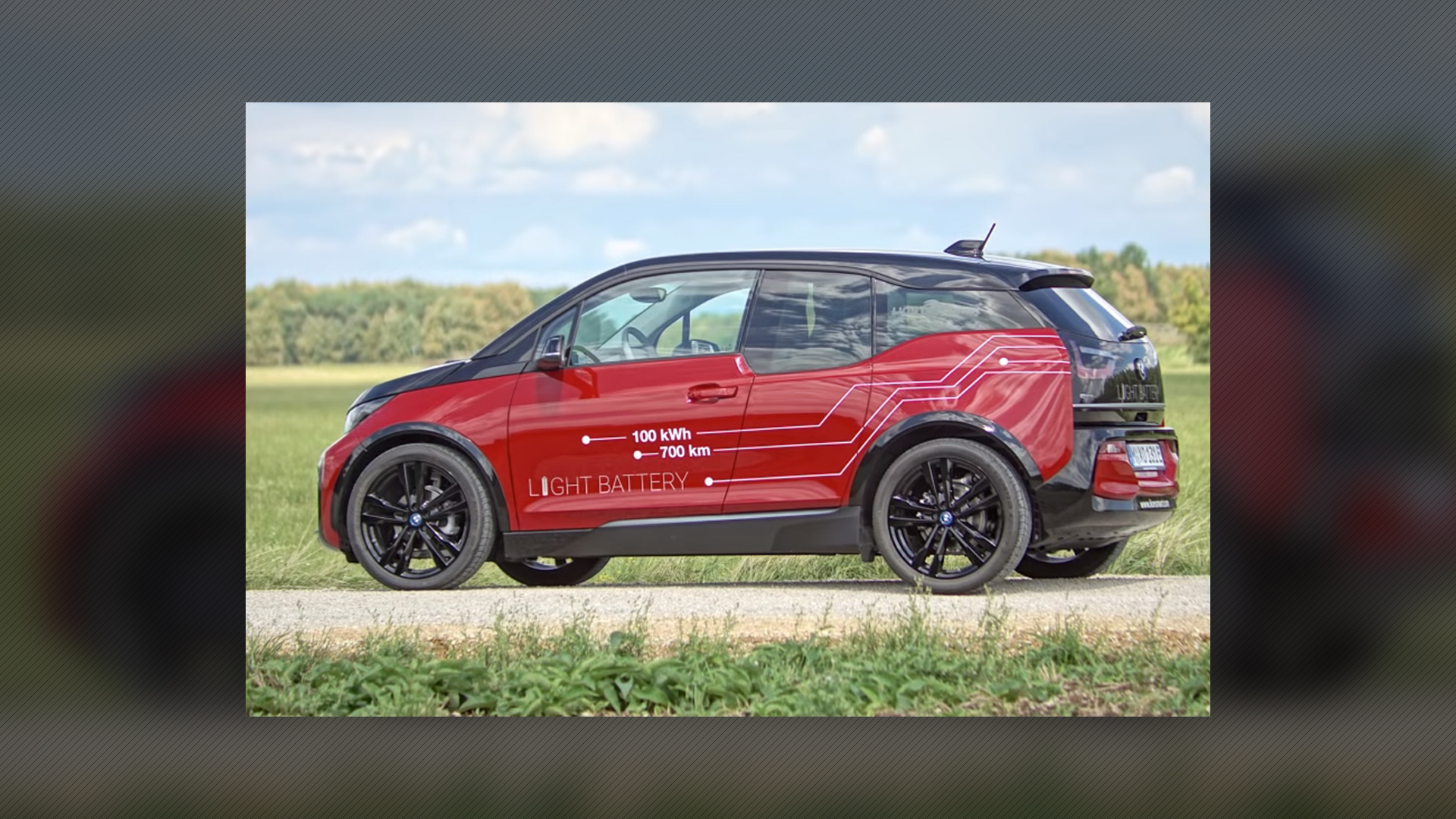

LION Smart is one of the many companies looking to dip its toes into the ripe new world of electrified vehicles, and it’s doing so through one of the most subtle, yet important, channels—energy storage. Recently, LION put one of their ultra-high density battery packs into a BMW i3 and extended its range to 435 miles.
The battery pack is one of LION’s newest prototypes, the “Light Battery,” is aimed at making Lithium-Ion battery packs sustainable in cars for longer by increasing the energy density in a smaller form factor. When installed in the i3, the Light Battery more than tripled the electric Bimmer’s capacity from 33 kilowatt-hours to 100 kWh, and nearly quadrupled its range from 114 miles to 435 miles, though did not specify if the range was calculated using the New European Driving Cycle (NEDC) test, which, due to being an outdated testing standard, is norotiously overzealous in the amount of range it estimates, or the newer Worldwide Harmonised Light Vehicle Test Procedure (WLTP).
Ironically, the 435 miles of range is the exact same number that BMW promised its next-generation iNext platform would offer consumers, though it’s likely a coincidence due to the luxury car manufacturer having already signed a deal with Chinese battery maker CATL. LION lists Bosch, BMW, Kreisel, Toyota, and Volkswagen as customers, and mentions that it has already penned a deal with Toyota as an official supplier of Original Equipment goods in 2016.

LION claims that its Light Battery has the highest energy density available due to the modular design of the battery packs, including its unique cooling channels which can isolate batteries experiencing thermal runaway and safely vent them via a valve should their contents become gaseous.
Battery packs will be able to communicate with one another wirelessly, allowing the entire unit to be wire-free. While this may not seem that important, it particularly shines when it comes to battery pack assembly. This saves on the cost and complexity of running wires across the battery pack, as well as enables completely automated assembly of the unit. Tesla CEO Elon Musk once spoke about the complexity of assembly robots and wires, describing it as very challenging to perfect compared to a human. A person can reach out and grab a wire to connect it, whereas a robot may have difficulty assessing the position, orientation, and location of a wire.
LION’s concept is interesting in a sense that it has birthed new life into BMW’s existing platform. Sadly, it appears that LION is looking to become a supplier to manufacturers and not a public supplier, so obtaining a battery for your own retrofit might not be so easy. But as electric cars become more prevalent in society, LION’s technology may be in one of your future cars without you even knowing.